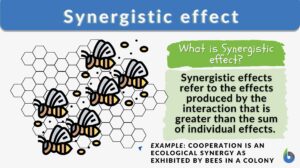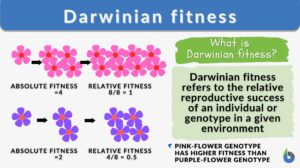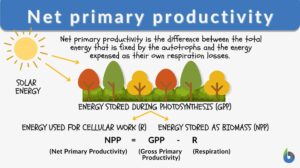Search Results for: sum
Wilcoxon rank-sum test
Definition noun A non-parametric test of two samples which support exclusively on the order of observations in which the two... Read More
Probability
Probability Definition How do you define probability? In science, probability is a measurement tool that calculates the... Read More
Synergistic effect
Synergistic Effects Definition In biology, synergistic effects are the effects when chemical substances or biological... Read More
Mechanical equilibrium
Definition noun A state of a physical system at rest or in unaccelerated motion, and where the sum of all forces and torque... Read More
Darwinian fitness
Darwinian Fitness Definition Darwinian fitness refers to the measure of an individual organism's or genotype's reproductive... Read More
Biotic potential
When we look at the different forms of life, we often wonder how they have continued to exist one generation after another.... Read More
Residual volume
Residual volume is a term that is most often seen in lung physiology where it is defined as the amount of air remaining in... Read More
Environmental resistance
Environmental Resistance Definition Environmental resistance is such a process in which certain different elements or... Read More
Meiosis and Alternation of Generations
Review of Mitosis: Cell Cycle The cell cycle contains the process in which cells are either dividing or in between... Read More
Circulation
Blood Blood is composed of a liquid, plasma, and blood cells such as erythrocytes (red blood cells,) leukocytes (white... Read More
Additive genes
Definition noun Genes that code for the same function or trait and their effects work together on the... Read More
Movement of Molecules Across Cell Membranes
Diffusion Diffusion is essentially the movement of molecules from a region of higher concentration to a region of lower... Read More
Carrying capacity
Carrying Capacity Definition What is carrying capacity? In biology and environmental science, the carrying capacity of a... Read More
Respiration
Organization of the Respiratory System Each lung is composed of air sacs called alveoli - the sites of gas exchange with... Read More
Net primary productivity
In order to keep the biosphere running, different organisms play different roles and functions. Some help in oxygen... Read More
Biotic factor
Biotic Factor Definition A biotic factor is the living component in an ecosystem. The term "biotic" means "of or related... Read More
Genetic diversity
Genetic Diversity Definition Each species is composed of individuals with their own set of genes. A gene is the inheritance... Read More
Inhibitory postsynaptic potential
Inhibitory Postsynaptic Potential Definition An inhibitory postsynaptic potential is a type of synaptic potential. It is... Read More
Net photosynthesis
Definition noun (1) The difference between the total amount of photosynthesis and the sum of the rates of respiration (i.e.... Read More
Plant Cells vs. Animal Cells
Plant Cells Most cells are not visible with the naked eye. However, with microscopes of various types, plant cells can be... Read More
Functional residual capacity
Definition noun The volume of gas that stays in the lungs at resting expiratory level or at the end of a normal... Read More
Dehydration reaction
What is dehydration synthesis? A dehydration reaction is a form of biochemical reaction wherein a water molecule is lost or... Read More
Types of Transplants
Submitted to biologyonline.com on March 7, 2009 Published by biologyonline.com on March 29, 2009 Transplants are... Read More
Axon hillock
Axon Hillock Definition What is axon hillock? If you are familiar with the different parts of the neuron, the axon hillock... Read More
Additive effect
Additive effect (Science: biochemistry, chemistry) An additive effect is the overall biological effect two chemicals acting... Read More
Person-years
Definition The total sum of the number of years that each member of a study population has been under observation; e.g.,... Read More
Vegetation
vegetation The plant growth forms that generally occupy a given area (for example, forest, hydrophytes or chaparral). The... Read More
























